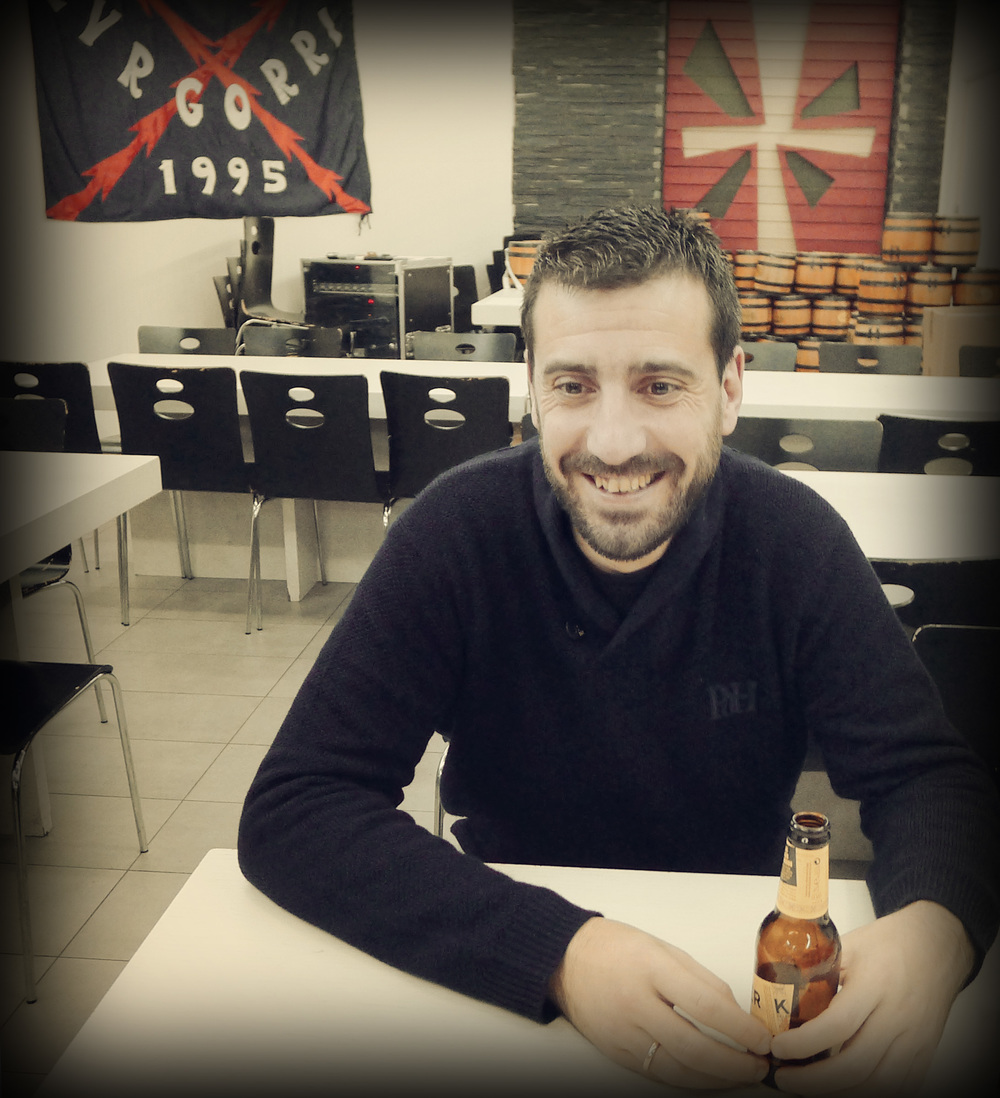A Copa Con...Josu Casal

Time for the second installment of my new Tuesday series, "A Copa Con..." As many of you know, last week was San Sebastián's biggest day of the year, el Día de San Sebastián, aka La Tamborrada. As a few of you know, I participated firsthand in this 24-hr drumfest, which kicks off the night of the 19th and lasts until midnight the next day. Non-stop drumming can be heard at any hour, throughout the entire city. It's incredible.
For this reason, and more, I wanted to have a chat with a key player in the festivities, Josu Casal. He is what they call "Barril Mayor", a co-director of a tamborrada, or group of drummers. Each tamborrada (and there are at least a hundred) has a Barril Mayor and the Tambor Mayor, the higher-up. Josu's day job has nothing on his role directing dozens of amateurs into playing beautiful music in various states of soberness in front of the most important gastronomic societies in the world, on the most important day in San Sebastián. So we sat down at the batzoki for a beer.
What's your role in San Sebastián Day?
I co-directed two tamborradas, Lurgorri and El Círculo Riojana. I got home at 7:30 am [after the first] and woke up at 1pm for the other. I've directed since 2005, but I've been in the tamborrada since I was little.
How does one become 'barril (or tambor) mayor'?
They asked me if I wanted to. Normally, when someone leaves someone else takes their place. And when the 'tambor mayor' leaves, the 'barril mayor' takes his place. It's a chain. But when you're 'tambor mayor' and you leave, you don't ever come back. You leave for good.
Your job is direct the Tamborrada. Everyone has to behave, stay in line...you have to improvise a lot. If another tamborrada crosses your path, you have to know if they are newer or older than yours. If they're senior, you have to be silent. If they're newer, you keep playing and they stop.
What's the hardest part of directing in the Tamborrada?
That everyone behaves themselves. It's a mess. The most important is that when you go to a sociedad, you have to respect the sociedad. You go, you play, and you're well-behaved.
Did you have to practice?
No, now no. At first, yes, when I began. It's hard...people think it's easy, but it's difficult. When you mark the beat (done with a big stick or cardboard knife), you have to mark it before the people play. You always have to go a bit before the music, a tenth of a second before.
How did we do?
It was the first year...there were a lot of new people. Many of you had never been in the Tamborrada, but really good, it was really good. Better than what I thought. The first practice I came and said "Me cago en..."
Not that I wanted it or missed it, but I expected a lot more drunkenness.
We didn't drink much. Maybe it's because of the recession [laughs]. Normally the sociedades give out a lot of champagne, but this year everyone was complaining, "We're not drinking." But you have to know the trick-carrying a flask, of whiskey or something.
What did you eat on San Sebastián day?
On the eve, I ate dinner in Restaurante Aratz. Lobster, cígalas (european crayfish), turbot, but...baby eels no. A little plate is 90 euros. They're too expensive for what they are. Plus, they're filling. And the day of, patatas a la riojana, and not much more. I was hungover.
The state of Basque cuisine?
Traditional Basque cuisine is degenerating a bit. We need to defend it, because we are losing it.
What would you never have change about Basque culture/life?
The tamborrada. It's sacred. I always take my vacation time around the tamborrada, both before and after. Because it's a mess...the week before, when practice ends, you have a beer, and sometimes you end up getting home at 4am. You have to prepare your liver...
What would you change about Basque people or culture if you could?
Nothing. Now that we've "finished" with the terrorism, I think we're good. Maybe...the image that Spanish people have of Basques.
Have any questions for Josu or me? Leave them in the comments section.
